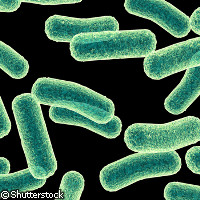New EU project AEROPATH takes on 'superbugs'
A new EU-funded project, AEROPATH, brings together scientists in the UK, Sweden and Germany to develop antibiotics to combat highly drug-resistant bacteria, the 'superbugs' that plague hospitals. The project has received EUR 4.6 million under the EU's Seventh Framework Programme (FP7) and is coordinated by the University of Dundee in the UK. Multi-drug resistant bacterial infections pose a serious risk to public health and are particularly dangerous for people suffering from burns and cystic fibrosis and patients whose immune systems are weakened (for example, as a result of chemotherapy treatment or AIDS). The AEROPATH project focuses on Pseudomonas aeroginosa, an opportunistic pathogen that accounts for a significant percentage of hospital-acquired infections and has a fatality rate of around 50% in this group of vulnerable patients. P. aeroginosa is well known for its ability to exploit any weakness in its host; it rarely infects healthy tissues but it can infect any tissue that is compromised in some way. Among other things, it can cause urinary tract infections, respiratory system infections, gastrointestinal infections and several types of systemic infections. P. aeroginosa is able to flourish in hospitals because of its very minimal requirements: it can grow in plain, distilled water, can tolerate a wide range of temperatures and doesn't mind high concentrations of salt, weak antiseptics or antibiotics. It often makes its way into hospitals on fruits, plants and vegetables. A few antibiotics have some effectiveness against this superbug (fluoroquinolones, gentamicin and imipenem have been used), but only against a narrow range of bacterial strains. Treating cystic fibrosis patients with antibiotics is particularly futile, as the result is usually Pseudomonas infection by a strain so resistant that it cannot be treated at all. The project's main goal is to develop new compounds that can be used to kill P. aeroginosa and, hopefully, other resistant species. Professor Bill Hunter of the University of Dundee in the UK explained, 'These bacterial species are highly resistant to most current drugs. What we are doing in this project is seeking out chemicals which can underpin future antibiotic drug development to combat these dangerous bacteria.' The project's partners are the University of Dundee and the University of St Andrews in the UK, the Karolinska Institute in Sweden and two German-based biotech companies. The project partners will study the genome data of P. aeroginosa as well as two similarly resistant species (Stenotrophomonas and Acinetobacter). Using computer modelling and advanced imaging techniques (single crystal diffraction imaging), they will build three-dimensional models of the proteins essential for the bug's survival. These structures can then be used to determine how certain chemicals might bind to these proteins, disrupt them and ultimately destroy the bacteria. Because P. aeroginosa's natural habitat is the soil (also home to bacilli, actinomycetes and moulds), it is well adapted to naturally occurring antibiotics. Its 'gram-negative' outer membrane makes it relatively impermeable, and it colonises surfaces as a kind of biofilm (like a firmly anchored community), which makes it even more resistant to antibiotics. Importantly, it can transfer its 'antibiotic resistance' genes to other bacteria (within the same species) quite easily and, according, to Professor Gunter Schneider of the Karolinska Institute, may also be able to transfer these genes to other species. The project's goal is to stop the bacteria before it can spread the damage. Professor Mike Ferguson of the University of Dundee, said, 'This programme brings together a powerful coalition of scientists to research new medicines against gram-negative bacteria, some of the hardest bugs to deal with clinically. It is a great example of interdisciplinary science, applying chemistry, biology, biophysics and computational methods to a specific medical problem.' Professor Hunter added, 'We look forward to the challenge and are determined to progress our research to make significant advances in an important yet relatively neglected area.'
Countries
Germany, Sweden, United Kingdom



